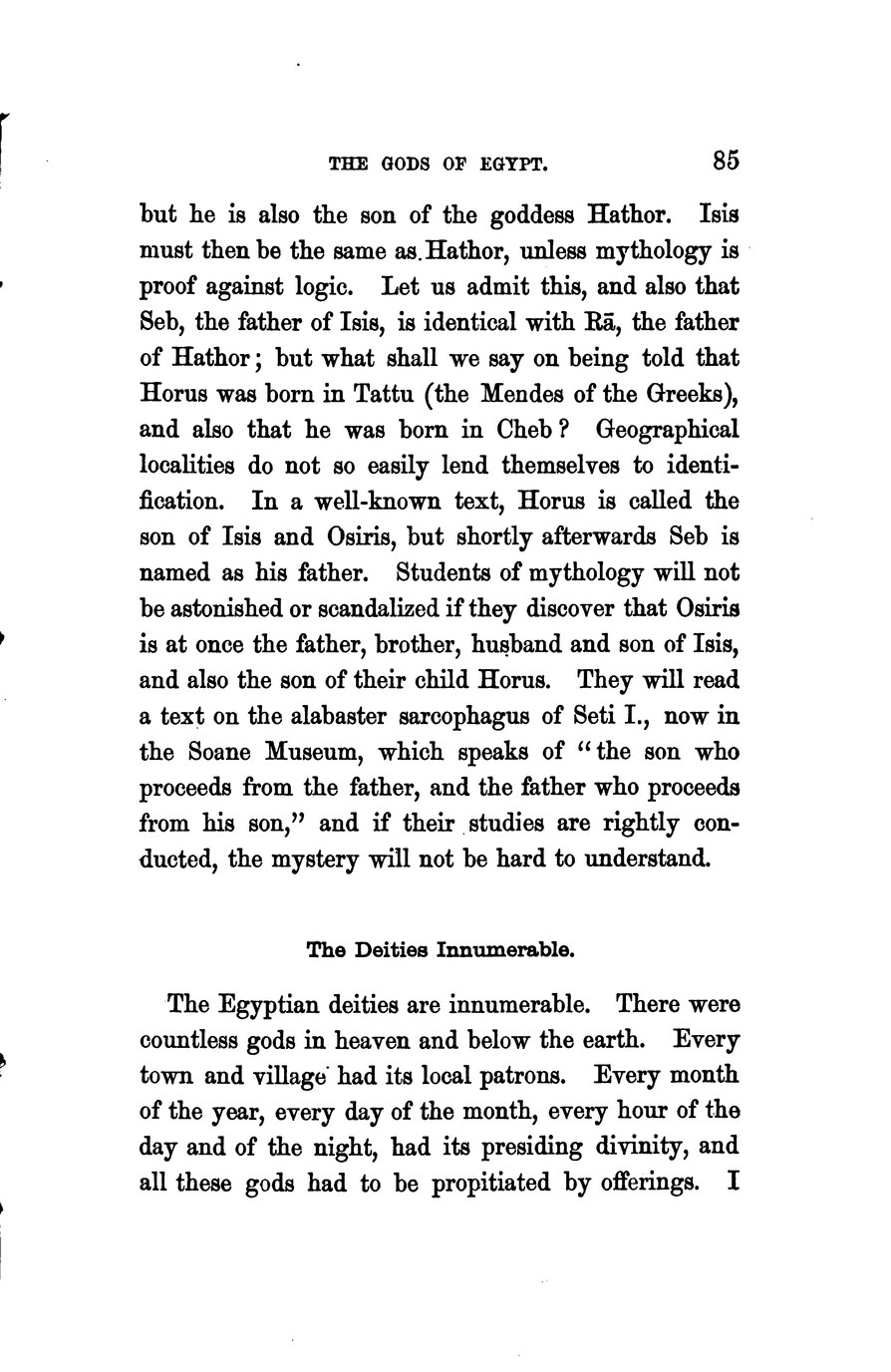but he is also the son of the goddess Hathor. Isis must then be the same as Hathor, unless mythology is proof against logic. Let us admit this, and also that Seb, the father of Isis, is identical with Rā, the father of Hathor; but what shall we say on being told that Horus was born in Tattu (the Mendes of the Greeks), and also that he was born in Cheb? Geographical localities do not so easily lend themselves to identification. In a well-known text, Horus is called the son of Isis and Osiris, but shortly afterwards Seb is named as his father. Students of mythology will not be astonished or scandalized if they discover that Osiris is at once the father, brother, husband and son of Isis, and also the son of their child Horus. They will read a text on the alabaster sarcophagus of Seti I., now in the Soane Museum, which speaks of "the son who proceeds from the father, and the father who proceeds from his son," and if their studies are rightly conducted, the mystery will not be hard to understand.
The Egyptian deities are innumerable. There were countless gods in heaven and below the earth. Every town and village had its local patrons. Every month of the year, every day of the month, every hour of the day and of the night, had its presiding divinity, and all these gods had to be propitiated by offerings. I
